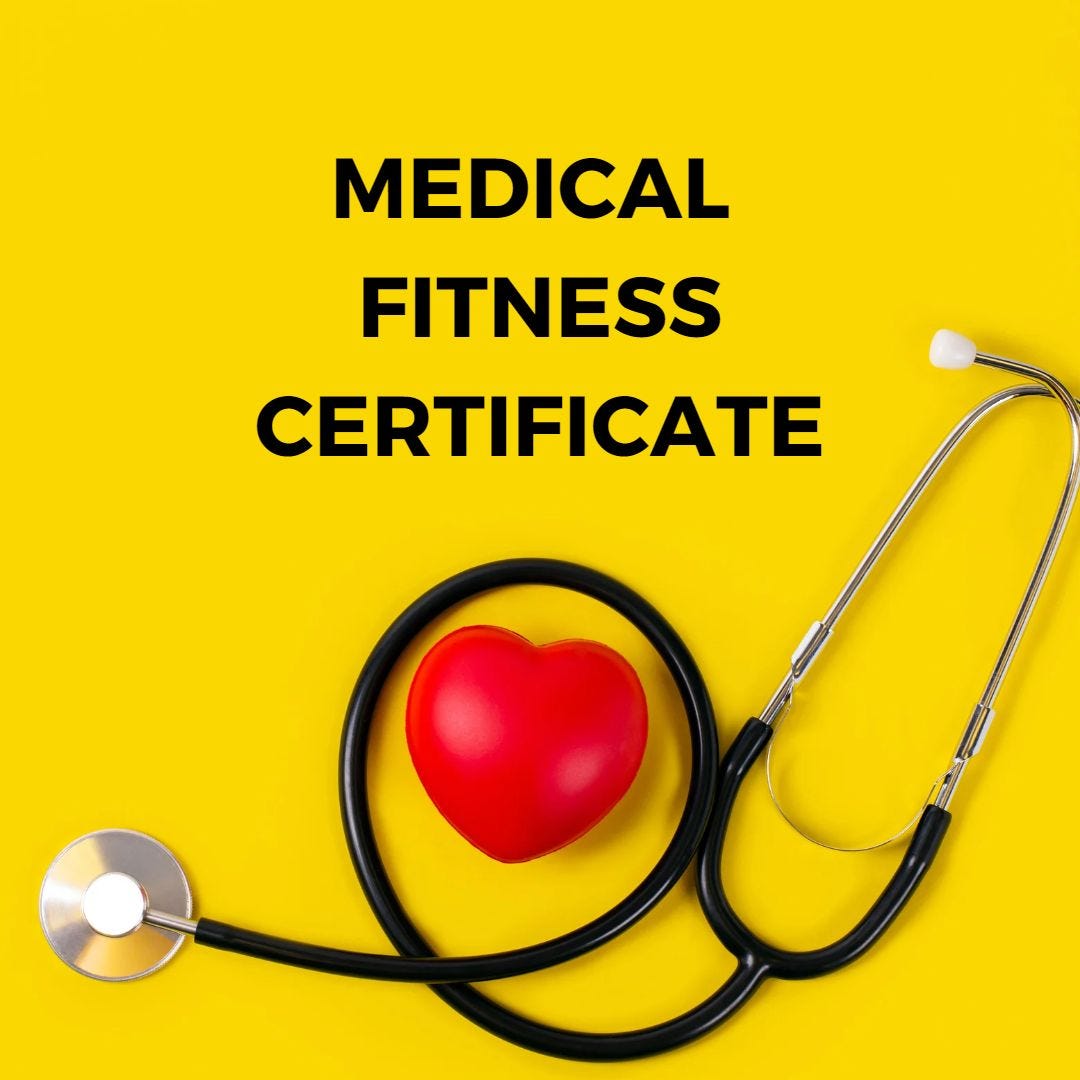In the pursuit of a healthy and active lifestyle, the role of a medical fitness certificate is often underestimated. This document serves as a crucial checkpoint, ensuring that individuals are physically capable of engaging in various activities, from sports participation to employment requirements. Let’s delve into the significance of a medical fitness certificate and why obtaining one is a proactive step toward overall well-being.

Demystifying the Medical Fitness Certificate: Your Gateway to Health and Wellness
A medical fitness certificate is an official document issued by a qualified healthcare professional, affirming an individual’s physical health and ability to participate in specific activities. Its purpose extends beyond mere formality; it serves as a preventive measure to avoid potential health risks associated with certain endeavors.
Scope and Applicability
This certificate is applicable in diverse contexts, ranging from school admissions and employment to sports competitions and travel visas. Different institutions may have specific requirements, but the underlying goal remains the same: ensuring an individual’s physical readiness for a particular undertaking.
The Medical Examination Process
Comprehensive Assessment
Obtaining a medical fitness certificate involves a comprehensive examination conducted by a licensed healthcare provider. This assessment includes evaluating vital signs, overall physical health, and specific criteria relevant to the intended activity.
Specialized Assessments
Certain activities may require specialized assessments. For example, athletes might undergo cardiovascular evaluations, while individuals applying for physically demanding jobs may have musculoskeletal examinations. Tailoring the assessment to the nature of the activity ensures a thorough evaluation.
The Benefits of Obtaining a Medical Fitness Certificate
Early Detection of Health Issues
One of the primary advantages of the medical fitness certificate is its role in the early detection of underlying health issues. Through the examination process, potential concerns can be identified and addressed proactively, preventing complications down the road.
Risk Mitigation
For activities that pose physical challenges, the certificate acts as a risk mitigation tool. It ensures that individuals are aware of their physical limitations, reducing the likelihood of injuries or health-related incidents during the activity.
Navigating Different Requirements
Educational Institutions
Many educational institutions mandate a medical fitness certificate during the admission process. This ensures that students can actively participate in physical education and extracurricular activities without compromising their health.
Employment Opportunities
Certain professions, especially those involving strenuous physical activities, may require candidates to present a medical fitness certificate. This not only safeguards the well-being of the individual but also assures employers of the candidate’s physical capability.
Conclusion: Prioritizing Health in Every Pursuit
In the intricate tapestry of life, obtaining a medical fitness certificate is more than a bureaucratic necessity; it is a commitment to prioritizing health and well-being. By undergoing a thorough assessment, individuals equip themselves with the knowledge and assurance needed to engage in various activities safely.

2 thoughts on “Demystifying the Medical Fitness Certificate: Your Gateway to Health and Wellness”